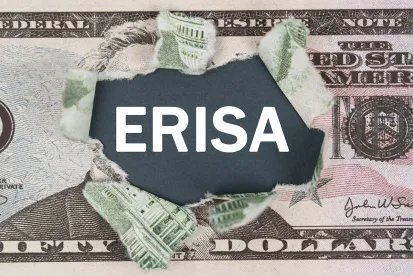Since the Supreme Court’s ruling in Fifth Third Bancorp v. Dudenhoeffer, courts around the country have overwhelmingly rejected ERISA fiduciary-breach claims by 401(k) plan participants seeking relief related to investments in company stock funds. The Seventh Circuit recently continued that trend by affirming the dismissal of claims brought by participants in the Boeing 401(k) plan, but did so on grounds that (i) the fiduciary responsibilities associated with the company stock fund had been delegated to an independent fiduciary, and (ii) the insider fiduciaries had no duty to disclose corporate inside information to the plan participants or the independent fiduciary. Burke v. The Boeing Co., No. 20-3389 (7th Cir. Aug. 1, 2022). As discussed below, the Seventh Circuit’s opinion provides helpful guidance to plan sponsors and fiduciaries that go beyond the specific circumstances presented in the case.
Background
Among the menu of investment options in the Boeing 401(k) plan was a Boeing stock fund in which plan participants could invest in Boeing stock. Unlike other investments in the plan, which were selected and monitored by a plan committee comprised of Boeing insiders, responsibility for management and oversight of the Boeing stock fund was delegated to an independent fiduciary.
In the aftermath of the widely-publicized issues concerning the Boeing 737 MAX, several Boeing 401(k) plan participants commenced suit against Boeing, the 401(k) plan and investment committees and several Boeing insiders, alleging that the participants’ investments in the Boeing stock fund declined because the defendants failed to timely disclose material information about those issues. The participants asserted claims for breach of the duties of prudence and loyalty, failure to monitor investments, and co-fiduciary liability.
The Seventh Circuit’s Opinion
As a preliminary matter, the Seventh Circuit observed that the Supreme Court in Dudenhoeffer had adopted a “demanding pleading standard” for breach of the duty of prudence claims involving investments in company stock funds, and agreed with an earlier Eighth Circuit opinion that held that plaintiffs “cannot use the duty of loyalty ‘to circumvent the demanding Dudenhoeffer standard’ for duty of prudence claims.”
Before applying these fiduciary principles to the circumstances presented in this case, however, the Court determined that it must first address the threshold issue of whether any defendant was in fact acting as a fiduciary with respect to the Boeing stock fund. The Court concluded that, under the plan documents, neither the individual defendants, the Boeing plan committees, nor Boeing had fiduciary responsibilities for managing this fund. In so ruling, the Court noted that responsibility for selecting and monitoring the investments in the Boeing stock fund had been delegated to an independent fiduciary in order to remove the risk of claims against insider-fiduciaries for being in possession of corporate inside information while serving as ERISA plan fiduciaries. The Court determined that there was no “legal barrier” that prevented Boeing from implementing such a delegation, and decades of ERISA stock-drop litigation provided “powerful reasons” for plan sponsors and fiduciaries to take this step.
Having disposed of the plaintiffs’ claims that the defendants were fiduciaries responsible for the Boeing stock fund, the Court then rejected the plaintiffs’ argument that ERISA’s duty of loyalty included a non-delegable duty to disclose non-public information to plan participants, which would require full public disclosure to all shareholders and potential investors. The Court explained, as it had previously held over a decade ago, that a violation of ERISA’s disclosure requirement “requires evidence of either an intentionally misleading statement, or a material omission where the fiduciary’s silence can be construed as misleading.” Furthermore, it stated, plan fiduciaries are not required to provide all information about the defendant corporation’s business decisions in real time to plan participants. The Court similarly concluded that the duty to monitor appointees does not include a duty to keep appointees apprised of material, non-public information regarding the prudence of a plan investment.
Proskauer’s Perspective
While the Seventh Circuit’s decision did not break any new ground on the applicable legal standards, it provides some measure of comfort for plan sponsors and fiduciaries insofar as it reaffirmed some of the important principles that have protected them from liability—both with respect to the Supreme Court’s “demanding pleading standard,” and with respect to the ability of plan fiduciaries to limit or eliminate exposure to claims based on inside information by delegating responsibility to independent third parties. On the whole, the decision takes a refreshing practical approach to the challenges confronted by plan fiduciaries. And, through its endorsement of the principle that full responsibility for a stock fund can be delegated to an independent fiduciary, the decision provides an opportunity for plan sponsors and fiduciaries to obtain an additional measure of protection from legal exposure, beyond the protections already afforded by the Dudenhoeffer pleading standard.



 />i
/>i

